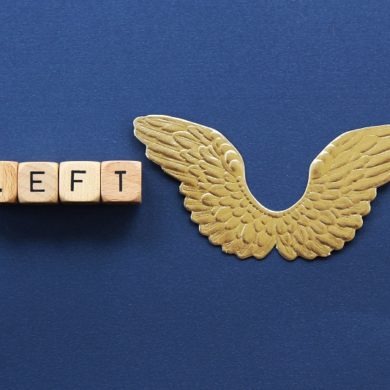Human beings are a highly intelligent primate, and highly social creatures. We create art, music, gender-affirming surgery, highways, spaceships, submarines, and plenty more. We’ve reached the depths of the ocean and the atmospheres of other planets. Yet we still live in a system that coerces us into copious amounts of mindless, breakneck-paced labor just to survive, and it leaves us resentful. Why?
Some of the most common jobs are being a store clerk/cashier, food service worker, or call center representative. These are the occupations that most people fulfill with all the waking hours of their lives. But not by choice. The majority of these people aspire to higher callings. These are simply the jobs that are available on a consistent basis and without prerequisites. Choosing not to work within the available labor market results in an inability to pay rent, afford healthcare, buy textbooks, provide for your child(ren), etc. Sadly, the same holds true even for most people working within this market, particularly those in service positions.
Isn’t it a little ridiculous that in this age of emergent technological advancement, most people are doing something they don’t want to do? Even people who may have been initially excited to get a job inevitably end up exhausted by the sheer amount of physical and mental labor that comes with the 40-hour work week, on top of home/familial responsibilities. Obeying an authority figure that’s getting rich off of your labor for 8 hours a day, 5 days a week, depletes one’s capacity for motivation. Service workers gracefully tolerate daily abuse from rude customers and their managers, all while operating beneath restrictive company policies about how employees can spend their time on and off the clock! According to the World Health Organization, 745,000 people die per year due to being overworked and excessively stressed. In the current socioeconomic system, your time can be owned by somebody else who will risk your life to maximize their profits.
What would it take for people to be able to exist without existential dread looming over their heads? How could that be accomplished?
Give people a choice. Give people their freedom—that beloved ideal around the world—but give it materially. Any way you measure it, people cannot be “free” to live their life how they wish if they are obligated to perform dreadful and sometimes meaningless jobs until they’re too tired to do anything else. Human beings need greater ownership of their time. While there isn’t any mainstream, material exit from working for others, the minimum next step of meaningful progress to liberation is the ability to tell an employer “your terms of employment are bogus and would rob me blind, I’m not going to work for you.” Today, even though that statement would be true, prospective employees must bow their heads and suck it up until they can retire—with the caveat that wage deflation and the foreseeable trajectory of inflation have rendered the possibility of retirement futile for most.
In a world where people are literally paying in blood (plasma) for an education, it’s safe to say that people need more material support from society. In a monetary economy, that means people need access to more money. Hence: Universal Basic Income.
Objections to UBI are usually founded on the idea that money possessed is money earned. But when you analyze the most common monetary exchanges and realize how little cash even exists in circulation, it becomes clear that the main objective of money is to influence labor. In essence, one’s monetary worth equates to how much of other people’s labor one can control. The very wealthy can hire scores of employees, can buy the most difficult-to-produce goods, and can hire assistants to take care of their affairs. People who are financially disadvantaged must toil for the wealthy, having little to no say in the matter. Ultimately, money is not obtained by creating bigger and better futures for humanity, but by increasing the percentage of human labor that fuels the current system. Capitalists who end up billionaires are not the people who work 100 hour weeks producing iPhones (a popular Christmas gift), but the people who manage to negotiate the most exploitative contracts for those mega-laborers, pay the least amount possible, and expand their extant model of exploiting the working class. They are rich because they are the controllers of labor.
Moving money around, then, stoichiometrically cancels out to a question of freedom. How much freedom you can afford is determined mostly by conditions of birth. Wealthy people are nearly always descendants of wealthy families, inheriting what is known as “generational wealth”. Poor people are nearly always descendants of poor families who’ve occupied the most oppressed regions of a given country. Trans people, people of color, non-men, queer people, and all the other marginalized groups see pay gaps, meaning these people have particularly low access to freedom. Which of these groups you might be born as (or even develop into) is outside a person’s control.
Racial disparity is particularly severe because each generation collects new trauma while inheriting the old.
By this point in time, humanity has innovated and manufactured enough stuff for everyone to live a materially blissful life of loving their partner(s), spending time with friends, and finally getting around to learning the sax or koto. The problem isn’t that we don’t have enough bread, houses, or phones (i.e. “scarcity”). The issues lie in how these goods are produced and accessed. The market forces of supply and demand are both manipulated by wealthy proponents of “free markets” and by the politicians they finance to create artificial scarcity and facilitate extravagantly profitable price gouging. As a result, prices for everything essential are rising way faster than wages.
Supply is arbitrarily reduced with technology being made to break, and by throwing everything from food to gadgets into the trash when it can’t be sold, utterly wasting the time and labor people put into producing these things. Mass purchasing, as with landlords buying houses en masse for the explicit purpose of renting it for a profit, also drives down supply.
Burning the candle at both ends, capitalists also invest copious resources into directly manufacturing demand through advertising and media outlets. Each person, on average, sees anywhere from 5,000 to 10,000 ads per day, breeding desire for commodities they would have been happy without and subsequently influencing cultural values as a whole. Cosmetics companies have a sordid history of reifying toxic beauty standards to psychologically torment women into purchasing their products. Fox’s celebration of US military hegemony drums up perpetual support for the arms industry. Marketing gives corporations subliminal dominance over the public, simultaneously driving sales and legitimizing the jobs they offer. Useless and destructive industries thus thrive and employ millions of people who could otherwise be contributing meaningfully to their communities and society as a whole.
Universal Basic Income is a platform which acknowledges this wasted wealth and potential by reducing the amount of labor people are forced to provide their exploiters. The work has essentially already been done, for the most part, to create a world where people can work a few hours a week. Our ancestors struggled to make things easier and better for us, yet that liberty is continually eroded as it gets more and more expensive for a person in the working class to live on Earth. People who physically, mentally, or emotionally cannot work might get a pittance from unemployment, if they’re lucky enough to fall into a specific, predetermined category. When do we, who were born into the class of people who service our society, say that we have been robbed long enough of what our families have already earned? When do we realize that humanity is wasting its potential?
Beyond Hope: A Cogent and Effective Solution
Labor-free income is based on sound science. When people no longer fear for their survival, they can begin to consider what’s next. They get a chance to breathe. Take stock of their life and what they want to do. Explore new careers. Devote time towards learning. Get involved in their community.
A society where people feel supported is a society of people who want to support others. Numerous studies suggest that receiving support not derived from coerced labor doesn’t hurt the economy. What it does do is give people freedom to decide how they spend their time. This translates into an environment that demands employers offer jobs that are fair and worth doing. People who are in the debt trap of low wage work, climbing cost of living, and inability to build equity will have an out, and the corporations who choose wage theft for profit will lose their cutthroat monopoly on the labor market.
A future with dependable, labor-free income doesn’t require technical innovation as much as it requires reorganization. The tech is already out of the bag. We have robots, machine learning, and sophisticated management tools. The reason society is not taking full advantage of these technologies is simple: doing so would completely obsolete a cornerstone of capitalism—dirt-cheap human labor. Of course, automation doesn’t have to be expensive to implement either, but that’s another story. When humans have the bargaining power to meaningfully negotiate terms of employment, employers will finally have to make work appealing and treat their employees with respect. If said scenario ‘forces’ employers to automate production and services, the working class still wins via the amount of work needed to sustain society decreasing even further.
Some companies would certainly flounder, but rightfully so. The most profitable companies have gotten where they are by turning exploitation into a science. Their techniques include coercing new hires into alternative dispute agreements, forbidding workers from using the bathroom as much as they need, drenching employees in anti-union propaganda, and illegally paying below minimum wage. If a friend treated you like this, they wouldn’t be your friend for long, yet corporate culture sells the idea that their competing co-workers and management are their “family”. Said companies also secure direct lines of contact with politically powerful people, via lobbying and campaign donations. The United States, for instance, has gotten to a point of total harmony between the super-rich and Congress. There is literally zero correlation (5% with an 8% margin of error) between which laws the public wants passed and what Congress actually passes. Economic elites on the other hand enjoy a 70-86% chance of their preferences being written into law. This is an ongoing ethical disaster. Impairing these companies by forcing them to sacrifice profits for livable working conditions isn’t the terrible thing that most news outlets clamor about.
Many Roads to the Dawn
Ideally, UBI could just happen when enough people with power finally listen to the desperate pleas of the citizens to have a livable life, and take heed of the countless deaths of despair caused by economic disenfranchisement and social alienation. The ingenuity to pull it off certainly exists, but perhaps not the political power.
Labor-free income offers the economic power shift that could lead to a new Renaissance. Building up momentum and popular support is an ongoing effort, but the number of people who have to get on board is massive due to the constant pushback by plutocrats, via state-sanctioned murder and culture-wide miseducation. In the United States, the Black Panthers organized towards it, then they were dismantled from the inside by COINTELPRO. Martin Luther King Jr. advocated it, he was shot. Thomas Paine argued for a form of it, but our history books usually leave that out. We need to realize that the government does not offer an avenue to UBI happening in countries like the US.
Alongside the political barriers to the traditional conception of UBI as a recurring paycheck paid by the government, there is another, more left-leaning critique to consider. If UBI is offered via simple payouts/money, there is overwhelming historical precedent for a radical inflation that would defeat much of the benefits gained by the working class, as it would become possible to charge people more for rent, food, and other living essentials. However, if the material disbursement were to happen by way of directly giving people goods and services, the possibility of inflation is nullified.
It’s time to stop asking for it to be given to us, and just do UBI ourselves.
Let’s build infrastructure that is designed with the principles of human dignity at the forefront. Practice giving things away. Pay things forward to people who are needier than us. Build up our communities with mutual aid and set examples of social profit. Help a friend cover an emergency bill if we get a nice bonus. Talk to people on the fence. Teach people about the possibilities of a world with unconditional income. We can help build the new world in the shell of the old.
Make these small changes to your lifestyle, and (as the virtue ethicists argued) they will change the way you think about human relationships. It is hard for most people in a capitalist world to conceive of large-scale structural alternatives to capitalism, and we see that in the perpetuation of money and state control in nations that successfully revolted against those same features of the previous ruling apparatus.
Once you get familiar with mutual aid, you can begin to accept that true change is going to come about when a big enough collective of people decides to create member-owned, member-controlled, single-payer systems for acquiring housing, food, healthcare, education, and all the other things that make human life thrive.
Allow me to share my own project for inspiration. Learning about how severely people are being exploited made me want to act, and I didn’t feel like the options were enough. How do we prevent all the predicted global catastrophes like climate change and nuclear apocalypse, on top of all the socioeconomic hardships facing people here and now, when power has become so concentrated among the economic elite? Well, we have to work together. To do that, we need to have the same kind of management tools that big businesses use, but designed with democracy and collaboration at their core.
I’ve wanted to learn web development for years, but being so worn out from café work made it impossible to focus for long enough to make progress. When I was laid off because of Covid-19 and started receiving Pandemic Unemployment Assistance, a mere shadow of Universal Basic Income but enough for me to live frugally, I finally had time to actually finish my course and make a website where people could coordinate grassroots action.
The idea is to bridge the gap between large-scale initiatives and specific action that people can practically take on within their own constraints. Anybody can submit an “issue”, or concern about the world. An issue can be linked to other issues that cause it, so complex problems can be divided into simpler ones. Anybody can submit a project, which might be completely new or draw from existing direct action campaigns. Projects can be broken down into tasks, which outline specific, easily approachable steps that individuals can take. Some of the most important initiatives will certainly be those of economic empowerment: production.
Although there’s a whole lot more to the project, I’ve already got the website started. It’s ready to use for documenting global issues, sharing solution-oriented projects, mapping the connections between issues and projects, forum discussion, and location mapping. Additionally, there are already designs for myriad functionality in the future. The next step will be coding.
And this is just one idea, one component of a possible infrastructural renaissance. What might you come up with if you had a year or two to simply recover from how exploited you’ve been in the struggle to survive? If your living needs could be provided for, would you help build a world that could provide the same to all?
Moneyless Society and One Community Global are among a few systems-change organizations that both have their boots on the ground, starting work on permaculture and physical communities for people to reinvent their socioeconomic relationships. You can find tons of other groups on MoSo’s own website to join and help. There’s no short supply of inspiration from which you can draw. The exciting thing about these projects is their purpose to create infrastructure that frees up people’s time from unnecessary work. Unlike the capitalist economy, working in the live-for-free movement is work towards liberation.


